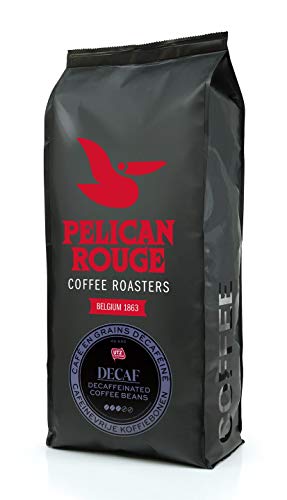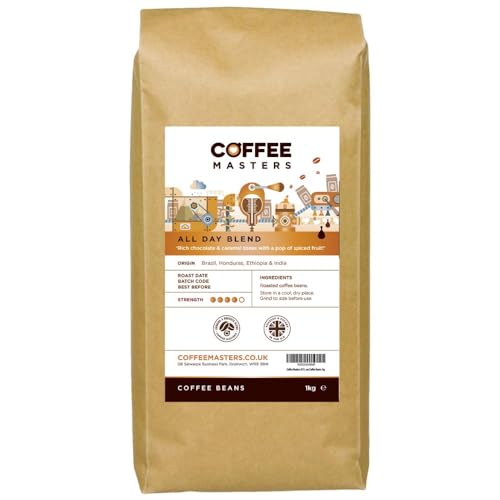The Top Companies Not To Be Follow In The Coffee Beans Types Industry
작성자 Patsy
작성일 24-09-21 13:05
조회 6
댓글 0
본문
 Coffee Bean Types: Arabica, Robusta, Liberica, and Excelsa
Coffee Bean Types: Arabica, Robusta, Liberica, and ExcelsaIf you're a lover of coffee you're likely to know that different types of beans can produce different flavors. Find out about four of the most widely used varieties: Arabica. Robusta. Liberica. and Excelsa.
Excelsa beans are a kind of Liberica, are grown exclusively in Southeast Asia. They have a sweeter and more tart flavor profile and are often added to blends of beans to add depth.
Arabica
Arabica is the most sought-after coffee worldwide, making up 75% of the world's coffee beans produced. Arabica beans are milder and sweeter than Robusta, and come in different flavour profiles. The taste and aroma components of a cup of coffee can differ greatly based on the climatic conditions and methods of processing employed to make it.
The word "coffee" originates from the Arabic word that means berry. speciality coffee beans beans are actually seeds that develop inside bright red berries. It is believed that ancient Ethiopian shepherds discovered that their goats were stimulated by eating these fruits. The cultivation of Coffee bean Shop near me (Https://enfogentraining.Com/) quickly spread all over the world.
Coffee beans can be grown at higher altitudes and are capable of thriving when exposed to cool temperatures and plenty of rain. This is one of the main reasons that Arabica is regarded as the best-tasting type of good coffee beans.
Many specialty coffee shops and roasters are focused on ethical sourcing of arabica beans, focusing on fair wages for farmers and sustainable farming practices. These companies blend arabica beans in order to create unique signature coffees, which are suitable for a variety of brewing methods. Blending gives you control over the aroma, flavor and body of the coffee and is usually preferred to achieve an even and consistent flavor that appeals to a larger market.
Robusta
Robusta beans (Coffea canephora) are the second most commonly used variety of coffee bean grown in the world. They contain more caffeine per bean and are more protected against pests and diseases. They also have higher levels of chlorogenic acid, which are antioxidants naturally found in. These acids can cause oxidation in the coffee brewing and produce undesirable flavors.
The plant is more robust than the arabica, and can thrive in less favorable conditions. It is tolerant of warmer temperatures and thrives in direct sunlight. It is faster growing and produces more coffee per plant than arabica, which makes it a cost-effective crop to grow.
While it might seem contradictory Robusta beans are frequently combined with arabica to create coffee blends. If you see the names of countries such as Uganda or Kenya on a bag of coffee then it's likely that there's some robusta in there as well.
While some roasters exclusively use arabica beans but the majority do combine both varieties to lower costs and ensure the quality. To preserve the quality of the flavor, it's crucial to select a top-quality bean from a source that you can trust. This can be accomplished by buying your beans directly from a farmer.
Liberica
Liberica beans are more or less football shaped which distinguishes them from other varieties of coffee beans. They have an aroma that is fruity, floral and smokey. They are often added to other bean varieties to add a fuller, more robust flavor.
Liberica coffee beans are grown in West Africa and Malaysia (Borneo) as well as in Southeast Asia. They can grow in low altitudes, and they can tolerate hot, humid climates. They are also more resistant to disease than Arabica or Robusta.
These attributes make them ideal for home cultivation. On the internet, you can purchase seeds from a variety of sources. However, it's best to purchase the beans from local producers in order to guarantee quality. The ideal conditions for growing Liberica light roast coffee beans include fertile, deep volcano soils with moderately acidic, and enough annual rainfall.
Excelsa is a different type of coffee bean. It was originally classified as a distinct species, but has now been reclassified as a Liberica variant. These oval-shaped coffee beans are grown on large coffee plants that range from 20-30 feet in height at medium altitudes. They have a distinct taste that is both fruity and tart that makes them a popular selection in blends for house. They are also lighter on scent and caffeine than Arabica and Robusta yet still have an unusual taste.
Excelsa
Although they're the fourth most coveted kind of coffee beans, Excelsa beans aren't so easy to locate as Arabica or Robusta. They were considered to be distinct species of coffee until 2006, when they were reclassified to become a synonym for Coffea Liberica var. dewevrei. Nowadays, they're grown mostly in Southeast Asia and account for 7% of the world's production of coffee. The coffee beans have the shape of a teardrop and possess a dark, eerie taste. These beans are often used to give blends extra body and a tangy taste of ripened fruits.
Arabica beans are the most well-known, and are renowned for having a more sweetness. They thrive in tropical and warm climates and high altitudes. They also have a little of acidity. If brewed and roasted correctly, they can have notes like chocolate, nuts or even fruit.
Robusta is an extremely close second to Arabica and makes up about 40 percent of the world's beans. These beans are rounder and smaller, but contain twice as much caffeine as Arabica. They also have more bitterness than the other two varieties, and tend to have woody and earthy undertones.
After you've learned about the four most common types of coffee beans, it's time to choose the perfect coffee. If you're looking for a smooth soft, delicate flavor, go for an arabica bean or a blend of arabica and robusta beans.

댓글목록 0
등록된 댓글이 없습니다.